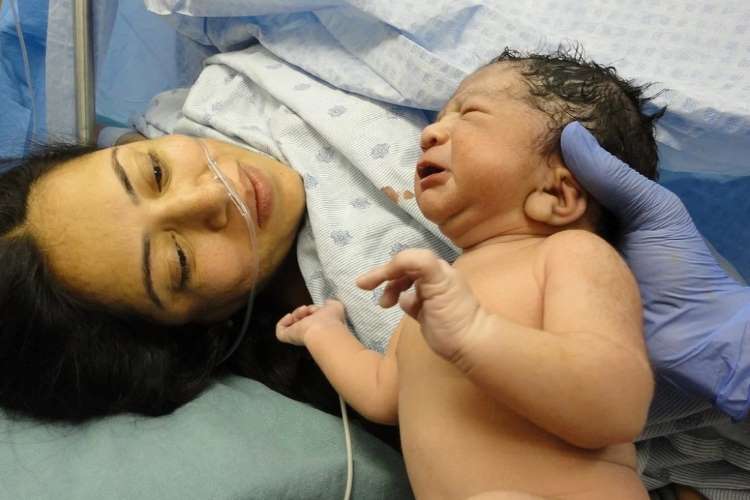
There was an interesting article in newspapers earlier this week. The Sassoon General Hospital in Maharashtra claimed to have reported the country’s first case of ‘vertical transmission’ of Covid-19 – vertical transmission means from a mother to her child through the placenta. Just imagine the plight of millions of pregnant women who read that article. Incomplete health information has the potential to confuse the reader, and sometimes confusion can lead to worry.
My mind immediately had a retrograde transmission to all those horrific stories about Zika from Brazil some years back. In fact, the Zika stories are etched deep in my mind that all my classes at medical school have pictures of mothers posing with their Zika infected babies — all with small, flat heads with that peculiar microcephaly look. Quite pathetic a frame, but it reminds us of the importance of prevention of infectious diseases during pregnancy. Those mothers relived their torture just to make millions of mothers aware about the dangers of Zika infection during pregnancy.
READ I Covid-19 explainer: All you need to know about how coronavirus is transmitted
I was curious about the fate of the pregnant mother and her unborn child in case the duo encountered a Covid-19 virus. The Zika story from Brazil made me a bit nervous too. How bad is Covid-19 for the pregnant mother and the newborn? How frequent is mother to baby vertical transmission? A family friend of mine had his second baby last week and he bombarded me with all these questions three weeks back. At that time, I kept silent and made it a point to address the issue later. Looks like it’s time to write something about it.
Current evidence from China and Europe suggests that pregnant women are at no greater risk of becoming seriously ill than other healthy adults if they develop coronavirus infection. The large majority of pregnant women who were infected experienced only mild or moderate symptoms. You may just note that pregnant women are slightly more likely than non-pregnant women to require intensive care and breathing support systems. This has been known earlier. All flu viruses are a little more tough with pregnant bodies.
READ I Covid-19 vaccine: The thrilling race for the magic bullet
You might wonder why we are worried about viral infections during pregnancy in general. Contrary to public belief, pregnant women are not more susceptible to the infection than the general population. But there is another problem for them. The changes to the immune system during pregnancy makes pregnant women more vulnerable to severe infections. Evidence from prior viral infections confirm this risky business.
Prior data published from several viral illnesses including Influenza A/H1N1, severe acute respiratory syndrome, and Middle East respiratory syndrome, suggest that pregnant women are at greater risk of severe maternal and neonatal morbidity and mortality. Evidence also suggests that the risk of critical illness is maximum in the later stages of pregnancy. Now you know why I became so curious about the possible damage Covid can do during pregnancy to the mother and her baby.
READ I Covid-19: Surviving the economic tsunami of global recession
I got the answers to my questions from a recent study from the UK. This study was published last month in BMJ by Marian Knight and colleagues on behalf of the UK Obstetric Surveillance System SARS-CoV-2 Infection in Pregnancy Collaborative Group. There is a striking aspect of this unique study. This study was designed in 2012 and was waiting in hibernation for the next pandemic to appear. When it came, they just dived into the water without wasting a minute. The study was activated as an urgent public health study in response to the SARS-CoV-2 pandemic.
The researchers reported findings from 427 pregnant women admitted to hospital with confirmed SARS-CoV-2 infection (March – April 2020). The main outcome measures included incidence of maternal hospital admission and infant infection. Rates of maternal death, level III critical care unit admission, fetal loss, caesarean birth, preterm birth, stillbirth, early neonatal death, and neonatal unit admission were also reported.
READ I Why India should avoid milk powder imports
Most pregnant women had symptoms predominantly around 34 weeks of pregnancy. Approximately 4 out of 5 women admitted to hospital had symptoms in the third trimester of pregnancy (27 to 40 weeks) or peripartum. The most common symptoms reported by women were fever, cough, and breathlessness.
The study reported that the chance of admission to hospital with confirmed SARS-CoV-2 infection in pregnancy was 4.9% per 1000 maternities. This risk was disproportionately high for black, Asian and other ethnic minorities. The risk of hospitalisation and further requirement of intensive care was high for pregnant women with co-morbidities like overweight and respiratory/ cardiac illnesses. Only 2% of women were treated with an antiviral agent.
READ I 1.3 trillion tonnes of plastic waste to be dumped by 2040
Less than a percent of those admitted (0.9%; 4.6 per 100 000 maternities) had a miscarriage, commonly in the range of 10 to 19 weeks pregnancy. Among those 262 women who delivered, 75% gave birth at term. Among those delivered preterm, 80% had iatrogenic preterm births, (48% due to maternal covid-19, 14% due to fetal compromise, and 18% due to other obstetric conditions). A total of 59% had a caesarean delivery, but most of the caesarean births occurred for indications other than maternal compromise due to SARS-CoV-2 infection. Among those who underwent delivery, only 27% had a caesarean birth for reasons of maternal compromise. Another 24% due to concerns about fetal compromise, 19% due to failure to progress in labour or failed induction of labour, 16% for other obstetric reasons, 10% because of previous caesarean birth, and 4% at maternal request. Approximately 10% of pregnant women admitted to hospital needed respiratory support, and one percent (CFR 1.2%) perished to the illness.
A total of five babies died (5/268) giving a mortality of just below 2%. Three deaths were unrelated to Covid 19 infection. Among babies, 25% were admitted to a neonatal unit (75% of whom were preterm). Just 5% of the infants tested positive for SARS-CoV-2 RNA. Only half of them were tested within the first 12 hours after birth which is required to call it a vertical transmission.
So, the Covid risk is minimal for pregnant mothers, just slightly more than a non-pregnant female. For the babies, both the risk of infection from the mother and the risk of complications including death are extremely rare. So go on, be happy with your pregnancy. You and your baby are going to be fine.
(Dr Manu Raj is a paediatrician, clinical researcher and research methodologist based in Kochi.)
Dr Manu Raj is a paediatrician, clinical researcher and research methodologist based in Kochi.

